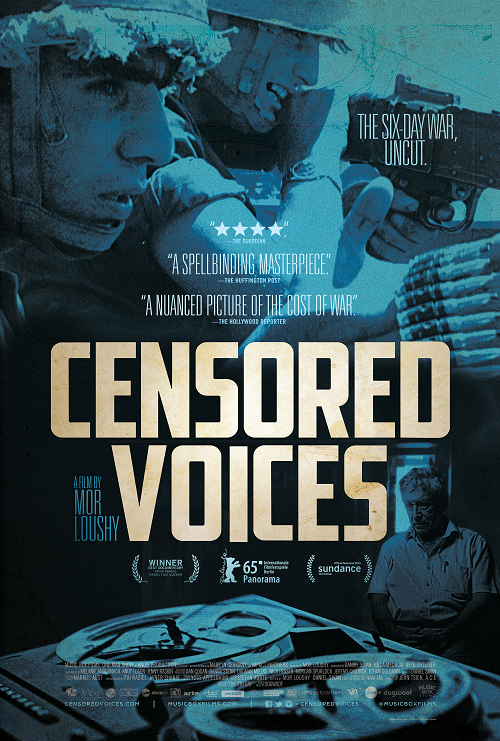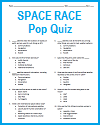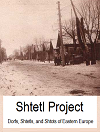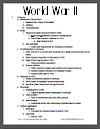Censored Voices is appropriate for a high school World History class. There is no nudity, and profanity is limited to a few f-words from soldiers. The martial violence shown is not gratuitous.Although the film does a good job of setting up the basic premise of the Six-Day War, educators should give some background on the founding of the Israeli state in 1948, and how Israel's neighbors in the Middle East saw themselves as its enemies.
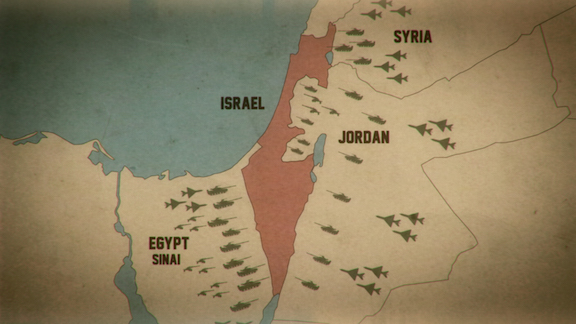
The Six-Day War gave Israel control over the Sinai Peninsula, Golan Heights, and West Bank. The overall premise of
Censored Voices is that the brutality of the occupation set the stage for the current, ongoing Israeli-Palestinian conflict.
This film had its American premiere at the
Other Israel Film Festival, hosted by the Manhattan JCC.
Censored Voices was enthusiastically received by the packed audience. Applause came during the film, when interviewees Elisha and Amitai Shelem remark that they are not a free people while the Occupied Territories exist. Mor Loushy (below, right) answered questions after the screening. Loushy was most impressed by how the soldiers featured in the film accurately predicted the current hostilities between Israelis and Palestinians.
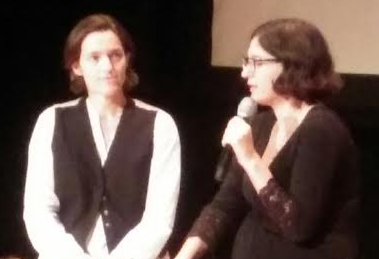 Censored Voices
Censored Voices will be released by Music Box Films in limited U.S. theaters on November 20, 2015.
Related Vocabulary and Content Terms: Arabs, ceasefire, civilians, Egypt, evacuate, Gaza Strip, Golan Heights, Israel, Jericho, Jerusalem, Jordan, Judaism, kibbutzim, Lebanon, Lion’s Gate, Middle East, military strength, nationalism, occupation, Occupied Territories, Old City, Sinai Peninsula, Suez Canal, Syria, Temple Mount, West Bank, Western Wall

 The Six-Day War gave Israel control over the Sinai Peninsula, Golan Heights, and West Bank. The overall premise of Censored Voices is that the brutality of the occupation set the stage for the current, ongoing Israeli-Palestinian conflict.
The Six-Day War gave Israel control over the Sinai Peninsula, Golan Heights, and West Bank. The overall premise of Censored Voices is that the brutality of the occupation set the stage for the current, ongoing Israeli-Palestinian conflict. Censored Voices will be released by Music Box Films in limited U.S. theaters on November 20, 2015.
Censored Voices will be released by Music Box Films in limited U.S. theaters on November 20, 2015.

